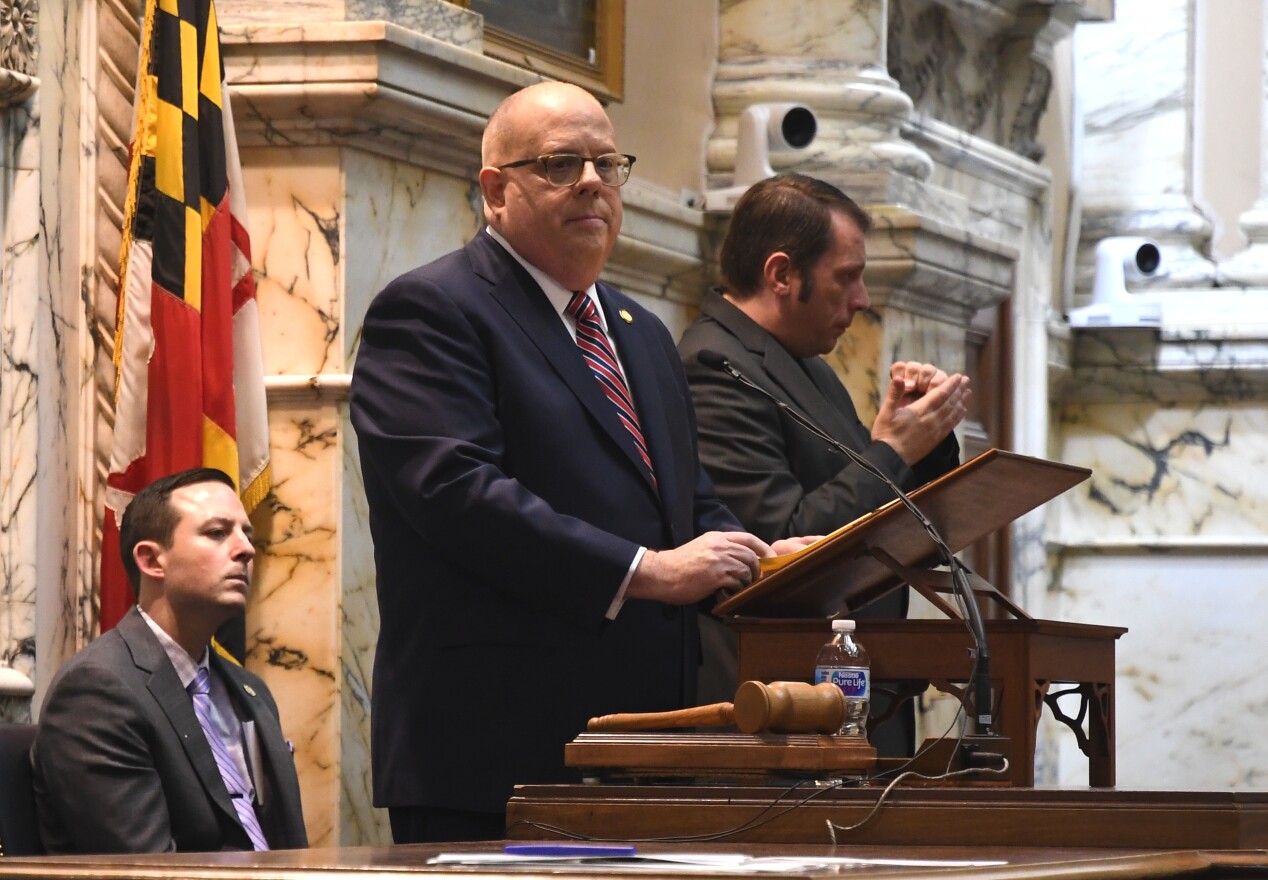A years-long fight over whether the governor should be the arbiter of parole decisions in Maryland may be nearing an end. On Monday, the state Senate passed a bill removing the governor from the parole process, after the House of Delegates did the same earlier this month.
The bill passed by the Senate does two things: It gives the Maryland Parole Commission the final say on whether an inmate serving a life sentence should be released; and it increases from 15 to 20 years the minimum time an inmate must serve to qualify for release.
Prior to getting to the governor’s desk, a request for parole from someone serving a life sentence requires an “extensive” review process, said Sen. Jill Carter, a Baltimore City Democrat.
First, the inmate has a parole hearing before two commissioners. The commissioners, Carter explained, could do one of three things.
“They’d deny it. They’d say, ‘Not now; come back in anytime between two and seven years.’ Or they'd say, ‘OK, we recommend you for a risk assessment,’” Carter said.
She said only one Maryland official conducts the risk assessments, and as a result, they typically take at least a year or two. Then a hearing commissioner reviews the risk assessment.
If the inmate is not deemed too high-risk to release, the next step is a hearing before the full Parole Commission, whose members are appointed by the governor. To get parole, a majority of the 10-person commission needs to approve.
“The Parole Commission is not some liberal body out there just trying to set everyone free,” Carter said.
An applicant for parole has to “seriously show that they are changed, that they are remorseful, and that they are being so productive, that it would be to the benefit of society to have them out,” Carter said.
Maryland is one of three states that gives the governor the final say in parole decisions, and for more than 20 years, no governor granted parole to anyone serving a life sentence. Gov. Larry Hogan broke that trend but still has only granted parole to a small portion of those recommended by the Parole Commission.
Former Gov. Parris Glendening has since said he regrets his opposition to paroling people serving life sentences. In an interview earlier this month, he said elected officials should be omitted from the parole process.
“If you have someone who has done something bad and is being considered, and the elected official involved in this has an election coming up this year, the chance of getting a truly impartial, fact-based decision is very, very remote,” he told WYPR.
In an op-ed in The Washington Post this month, Glendening said the Parole Commission is better equipped than the governor and his staff to make those decisions.
However, Senate Republicans argued Monday that the governor provides a key check on parole decisions.
“This bill follows a pattern, sadly, of the current General Assembly, focusing like a laser on watering down what in our state is already a pretty lenient system of justice in some places,” said Sen. Justin Ready, a Carroll County Republican.
Ready referenced the legislature’s efforts this session to reform policing and a bill passed last week that eliminates sentences of life without the possibility of parole for juveniles.
“The role of the governor in parole cannot be viewed in a vacuum,” Ready said. “I firmly believe that we need balance in criminal justice, and right now, what I see and the perception, I believe, publicly is that the scale is being weighted dramatically towards the offenders and away from public safety and victims.”
The Senate voted 31 to 16 to pass the bill.
The House and Senate versions of the legislation have some differences that need to be ironed out before it goes to the governor.







